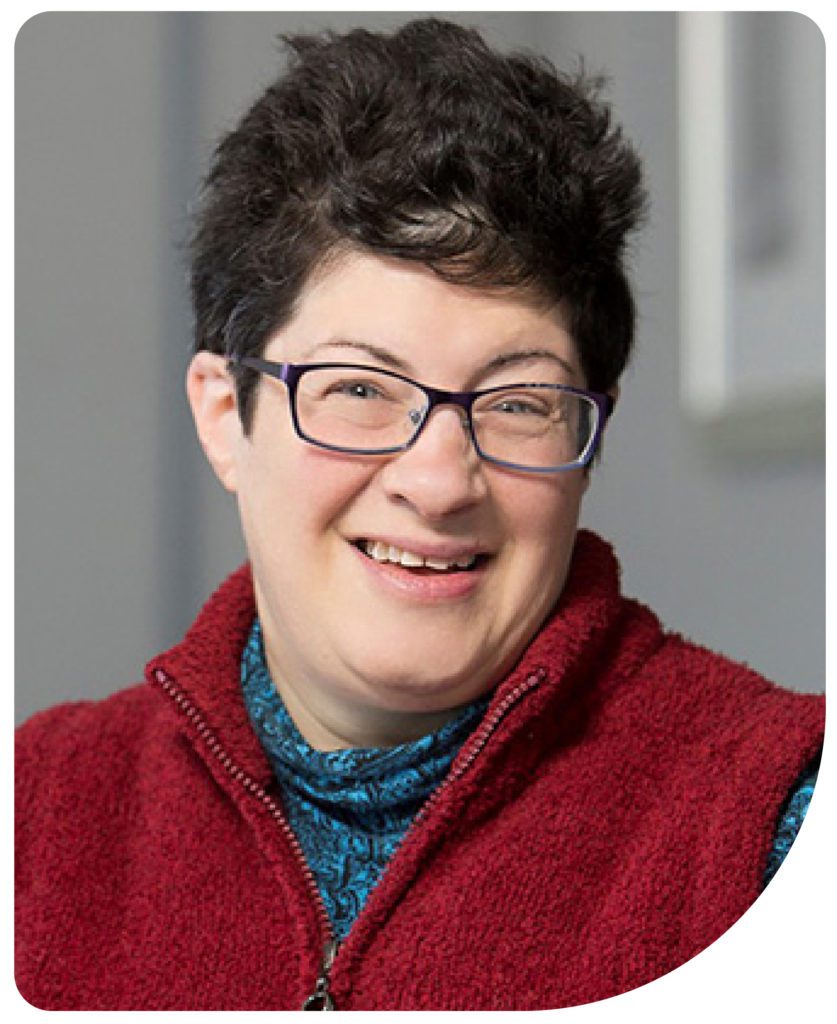November 2, 2021
Listen Now or on Your Favorite Podcast Platform
The Problem
Language is important. Being respectful to a person with a disability means using the right words. What are things you shouldn’t say to someone with a disability?
Join Michael and Holly as they talk with Liz Weintraub, Senior Advocacy Specialist with AUCD. They’ll discuss hurtful, outdated, and improper language they’ve heard in their everyday lives. And they’ll give words or phrases to use instead.
What We Can Do About It
It’s easy to get paralyzed by the feeling that we can’t make a difference. But helping out can be a lot simpler than we think.
Step 1: Treat Everyone Like a Person
Some terminologies that were common ten, twenty, or thirty years ago are now outdated and possibly offensive. If you hear someone using an outdated or offensive term, correct them. Even if there isn’t a person with a disability around. Use it as a teachable moment to better our society. It is everyone’s responsibility to make all feel welcome and included in every space.
Are you wanting to ask someone a question that may offend them? Ask yourself if it is something you really need the answer to. If it isn’t, then don’t ask. Every person is deserving of kindness and respect.
Step 2: Encourage Employers to Step Up
Ask your workplace to hold disability etiquette trainings for all employees. Ask for these trainings to be hosted by people with disabilities. They have the lived experiences that provides the level of expertise. It is allyship to amplify their voices by giving them a platform. Also, the people hosting the trainings should be appropriately paid for this work.
Step 3: Support Center for Disability Inclusion
Center for Disability Inclusion works with businesses to help with their disability inclusion efforts. They offer disability awareness and inclusion trainings. They also host many events each year including job fairs and webinars. Although the focus is primarily on disability inclusion, they have resources for veterans as well.
Boom. You’ve made a difference.

Liz’s Story
Liz Weintraub has a long history of leadership in advocacy. She has held many board and advisory positions. Currently, she is a full time member of the AUCD’s policy team. She’s also the host of Tuesdays With Liz: Disability Policy For All, where she works to make policy accessible to all.
Prior to being with AUCD, she served as a Fellow for Senator Bob Casey. Through that role, she helped lead the way on disability policy in the Senate.
One of her greatest accomplishments was being invited to testify before the Senate Judiciary Committee. She spoke about the potential implications of confirming Justice Kavanaugh.
Get More Information on Language and the Disability Community
Current Advocacy and Studies
- Disability Studies Quarterly – “Language patterns may have many implications for attitudes and action toward, and the identity of, people with disabilities.”
- Journal of College Teaching and Learning – This manuscript explores how language can play a role in making people feel included or excluded.
- Ohio State University – A study of the usage of “the mentally ill” versus “person with mental illness” showed that labels matter.
- American Psychological Association – The authors of this article suggest that attempts to avoid the term “disability” may have unintended consequences.
- Psychological Science – Researchers found that people who remembered a socially painful event had stronger feelings of pain than those who recalled a physically painful event.
- JAMA – Emotional pain is often times given physical descriptors in more languages than just English.
- Washington University in St. Louis – This small study found a correlation between emotional and chronic physical pain. They believe that emotional pain may be reasonable treatment target for people with chronic pain.
Terminology That Has Changed and What to Use Now
- USA Today – Why we should #SayTheWord “disabled” instead of “special needs.”
- Spread the Word – Various advocates explain why the R-word is so hurtful, and gives readers the option to take a pledge for inclusion.
- Forbes – This article breaks disability words into categories ranging from slurs to casual terms, and explains why they shouldn’t be used. They also list recommendations on how to address people using these terms.
- Today – A glossary of words and their uses relating to autism specifically.
- BBC – “Examining your own go-to phrases and attempting to replace them with less problematic synonyms is a good start” to rooting out ableism in our society.
How to Write and Speak About People with Disabilities
- ADA National Network – A great list of things to keep in mind when writing about people with disabilities.
- American Psychological Association – The official APA Style guide for writing and citations about disability.
- Brown University – Student Accessibility Services at Brown University put together this list of appropriate terminology.
- GOV.UK – This list from the government of the United Kingdom gives specific words to avoid and others to use instead.
- Australian Network on Disability – A workplace-specific list of guidelines from Australia that can be relevant worldwide. This list explains why “disclosure” of a disability can imply secrets and lies, and recommends using “choose to share” instead.
- People with Disability Australia – This printable pamphlet would be a great resource to leave in the break room at work or to hand out to friends and family.
- United Spinal Association – A pamphlet on disability etiquette available in English, Spanish, and Chinese.
What Not to Say to Someone with a Disability
- Diversity Inc. – “Oh, you’re here. You must feel better.”
- Cerebral Palsy News Today – “Just try a little harder, and you will see.”
- Vanderbilt Hustler – “You don’t look like you’re disabled!”
